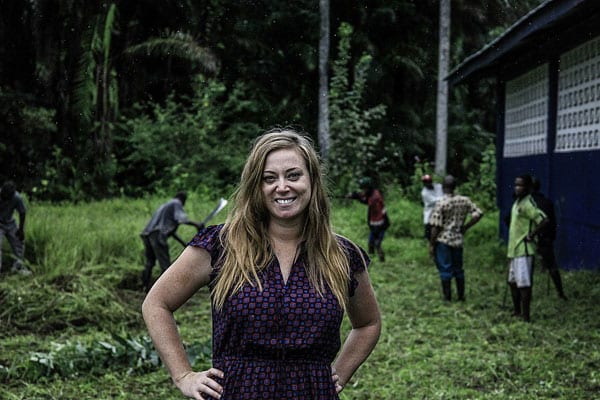
October 14, 2018; Al Jazeera
Since ProPublica released “Unprotected,” Finlay Young’s devastating expose on a campaign of rapes at schools in Liberia run by an American charity, More Than Me, global attention has been riveted on the horror of these events. It is beyond words that defenseless children in an already vulnerable situation were essentially set up to be violated not only by their abuser, but also by a school and society that failed repeatedly in their duties to protect them. But in this case, they were also set up by a well-backed, American-based, “humanitarian” effort led by an apparently charismatic, young, white woman with no experience in education and a penchant for grandstanding.
As discussions deepen and the world considers how to prevent such a travesty from reoccurring, it is important to keep in sight the cultural tropes and workings of humanitarianism that made this possible in the first place. This is especially crucial because the sad ugly truth is that this situation is only too common in countries recovering from violent conflict that have become host to massive influxes of humanitarian aid.
Sign up for our free newsletters
Subscribe to NPQ's newsletters to have our top stories delivered directly to your inbox.
By signing up, you agree to our privacy policy and terms of use, and to receive messages from NPQ and our partners.
Robtel Neajai Pailey astutely writes that this sordid saga is a “quintessential story of humanitarianism gone wrong,” of how the “white savior complex can spin outrageously out of control.” She very rightly diagnoses “our warped tendencies to glorify foreigners for swooping into poor countries under the guise of doing good” and “pathologies of constantly looking outside of ourselves for solutions and pandering to clueless foreigners.” But there’s another sinister factor that’s not talked about enough—the industries behind the official humanitarian matrices set up to meet the needs of conflict-affected people where the main commodities are the sexualities of women and girls, and the diversion of monetary and other material resources for personal gain.
White saviorism is problematic because it legitimizes the continuous flow of would-be Western do-gooders, often armed with nothing but good intentions and donor backing. Cases like More Than Me’s underline the importance of context and relevant experience. Anyone with the most basic understanding of the social dynamics in Liberia or any other post-conflict situation would have known that sexual and gender-based violence (SGBV) was a huge problem and not taken it for granted. The inexperience of Katie Meyler has been remarked upon and shows clearly through her handling of this crisis. White saviorism also thrives on the porn of poverty that freezes affected countries into essentialized images and relations of dependence from which they struggle to recover. But equally dangerous is its instrumentality as a facade for the less than honorable activities of some so-called humanitarians. There can be no sustainable reform of humanitarianism unless the world puts heads together to block the unintended consequences of humanitarianism.
The name of Meyler’s charity “More than Me” is oddly apt: The value and power of the do-good industry should transcend the individual and collective motives and personas of those who would provide help. As has been proven through this and other recently reported and horrific instances of aid gone wrong, that can create pain upon pain born of a basic disregard—and this, too, often ends up victimizing women. In any crisis, there is always a surplus of citizens and national and community organizations who compensate for their lack of material resources with an overabundance of goodwill, shared humanity based on tested community values, and who see, know, understand and live the most pressing needs of deprived communities. The best “good intentions” would often be better channeled into strengthening the capacities of community people to help their own.—Titilope F. Ajayi













